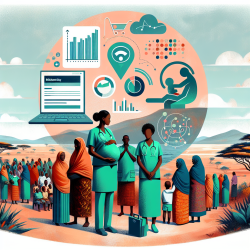Understanding the Need for Systemic Change in Education
In the face of global educational challenges, such as disparities based on race, socio-economic status, and other factors, the need for systemic change is more pressing than ever. The recent editorial by Kourea, Gibson, and Lovelace (2023) emphasizes the importance of implementing inclusive and culturally responsive educational practices. This blog aims to guide practitioners in enhancing their skills by adopting these research outcomes.
The Socio-Ecological Model: A Framework for Change
Bronfenbrenner’s socio-ecological model provides a comprehensive framework for understanding and addressing complex social issues within multiple spheres of influence, from family and school to community and culture. By focusing on the needs of the individual child and the interaction of their social environment, educators can create more inclusive and supportive learning experiences.
Key Insights from Recent Research
- Self-Management Interventions: Moses et al. (2023) highlight the efficacy of self-management strategies in promoting academic achievement and independence among at-risk students.
- Cultural Values in ABA Service Delivery: Castro-Hostetler et al. (2023) explore how cultural values impact the delivery of ABA services to Latino families, emphasizing the importance of culturally adapted interventions.
- Culturally Responsive Educational Practices: Taira and Maunakea (2023) demonstrate the transformative potential of integrating local cultural contexts into educational practices.
- Addressing Racial Disparities: Luna et al. (2023) provide recommendations for systemic change to reduce racial disparities in behavior-analytic services.
Implementing Systemic Change
To create meaningful change, educators and practitioners must adopt a systems-level approach that includes:
- Incorporating culturally responsive pedagogy and practices.
- Engaging in interdisciplinary research to develop inclusive educational models.
- Building partnerships between schools, communities, and families to support diverse learners.
By focusing on these areas, practitioners can contribute to a more equitable and culturally attuned educational system.
Encouraging Further Research
The research highlighted in this blog underscores the need for continued exploration of culturally responsive practices. Practitioners are encouraged to engage with the original research and consider how these insights can be applied in their own contexts.
To read the original research paper, please follow this link: Guest Editorial: It is Time for Systemic Change - A Call for Action in Implementing Inclusive and Culturally Responsive Educational Practices for Young People.










